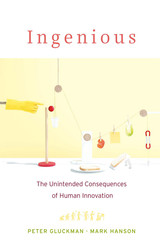
Developments in biotechnology, such as cloning and the decoding of the human genome, are generating questions and choices that traditionally have fallen within the realm of religion and philosophy: the definition of human life, human vs. divine control of nature, the relationship between human and non-human life, and the intentional manipulation of the mechanisms of life and death.
In Claiming Power over Life, eight contributors challenge policymakers to recognize the value of religious views on biotechnology and discuss how best to integrate the wisdom of the Christian and Jewish traditions into public policy debates. Arguing that civic discourse on the subject has been impoverished by an inability to accommodate religious insights productively, they identify the ways in which religious thought can contribute to policymaking. Likewise, the authors challenge religious leaders and scholars to learn about biotechnology, address the central issues it raises, and participate constructively in the moral debates it engenders.
The book will be of value to policymakers, religious leaders, ethicists, and all those interested in issues surrounding the intersection of religion and biotechnology policy.

Debates over health care have focused for so long on economics that the proper goals for medicine seem to be taken for granted; yet problems in health care stem as much from a lack of agreement about the goals and priorities of medicine as from the way systems function. This book asks basic questions about the purposes and ends of medicine and shows that the answers have practical implications for future health care delivery, medical research, and the education of medical students.
The Hastings Center coordinated teams of physicians, nurses, public health experts, philosophers, theologians, politicians, health care administrators, social workers, and lawyers in fourteen countries to explore these issues. In this volume, they articulate four basic goals of medicine — prevention of disease, relief of suffering, care of the ill, and avoidance of premature death — and examine them in light of the cultural, political, and economic pressures under which medicine functions. In reporting these findings, the contributors touch on a wide range of diverse issues such as genetic technology, Chinese medicine, care of the elderly, and prevention and public health.
The Goals of Medicine clearly demonstrates the importance of clarifying the purposes of medicine before attempting to change the economic and organizational systems. It warns that without such examination, any reform efforts may be fruitless.

As humans evolved, we developed technologies to modify our environment, yet these innovations are increasingly affecting our behavior, biology, and society. Now we must figure out how to function in the world we’ve created.
Over thousands of years, humans have invented ingenious ways to gain mastery over our environment. The ability to communicate, accumulate knowledge collectively, and build on previous innovations has enabled us to change nature. Innovation has allowed us to thrive.
The trouble with innovation is that we can seldom go back and undo it. We invent, embrace, and exploit new technologies to modify our environment. Then we modify those technologies to cope with the resulting impacts. Gluckman and Hanson explore what happens when we innovate in a way that leads nature to bite back. To provide nourishment for a growing population, humans developed methods to process and preserve food; but easy access to these energy-dense foods results in obesity. To protect ourselves from dangerous pathogens we embraced cleanliness and invented antibiotics, which has led to rising rates of autoimmune diseases and antibiotic-resistant bacteria. More recently, our growing dependence on the internet and social media has been linked to mental health concerns and declining social cohesion. And we are only at the beginning of the digital transformation that will influence every part of our existence. Our ingenuity has not only changed our world—it has changed us.
Focusing on immediate benefits, we rarely pause to consider the longer-term costs of innovation. Yet we are now starting to see how our choices affect the way our brains develop and our bodies function. The implications are profound. Ingenious opens our eyes to the dangers we face and offers solutions we cannot ignore.
READERS
Browse our collection.
PUBLISHERS
See BiblioVault's publisher services.
STUDENT SERVICES
Files for college accessibility offices.
UChicago Accessibility Resources
home | accessibility | search | about | contact us
BiblioVault ® 2001 - 2024
The University of Chicago Press









